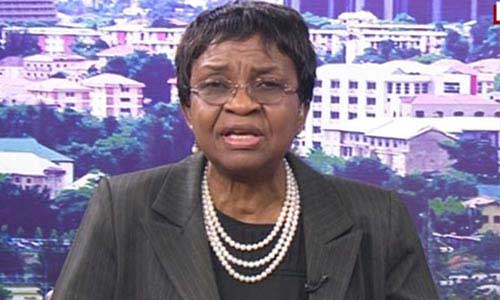NEWS UPDATES 12/01/2022
COVID-19: NAFDAC Debunks Efficacy Claims On Herbal Drug Produced By ABUA

The National Agency for Food and Drug Administration and Control (NAFDAC) has denied granting recognition to the herbal drug developed by the Afe Babalola University, Ado-Ekiti ((ABUA)
as COVID-19 treatment regimen.
The agency’s Director General, Prof. Mojishola Adeyeye, who stated this during an interview on Arise Television News programme Morning Show on Tuesday, said instead, what NAFDAC granted was approval for listing.
She said: “What NAFDAC does is to do a listing approval first. The listing approval is about safety of the medicine not its efficacy. This means that if a patient takes the medicine, there will not be toxicity that will threaten the life of the patient. So when we got the application in May last year, we sent what we called compliance directive, meaning what you should do and should not do.”
She explained that in the case of the Afe Babalola University, the agency got an application from the university authorities in May 2021 in relation to its viruseed drug and after subjecting it to preclinical stage test, approved it for listing as safe for consumption.
She said that one of the things that NAFDAC usually pays attention to for herbal medicines is the claim of efficacy.
“If one claims that a herbal drug can cure something, at the listing stage, you cannot do that. So what we did was to say remove treatment or cure of coronavirus from the label.
“We told the university that the herbal drug can only be effective as an antioxidant and immune booster. We also said that they should remove anti inflammatory problem and they complied because they corrected all the areas and in December, we then approved,” she said.
Adeyeye said that the university has complied with NAFDAC’s directive and has resubmitted its application.
She however said that not labelling the herbal medicine with a claim of efficacy against COVID-19 does not mean that it cannot be active against the virus.
“What it means is that you can lay claim on treatment until you get to the next stage which is efficacy,” she said.
The DG said that the listing approval was considered by all the members of the technical commitee before granting it approval.
On what the agency has to say on the claim by the proprietor of the university, Chief Afe Babalola, that the herbal drug is capable of curing coronavirus, Adeyeye rejected such claims, saying that what NAFDAC did in December was to give approval that it is safe for use.
“The efficacy study comes later and it depends on whether the application has money to do clinical trials,” she said.
Adeyeye said that drug development passes fives stages of approvals, the preclinical, then three phases of clinical trials and then the post marketing phase, which is what we have now for COVID-19 vaccines.
She added that for herbal medicine which has been in use locally for decades, phases one and two were collapsed together so that instead of going through many phases, it will just move to phase two, the efficacy.
Adeyeye further said that anyone seeking to carry out clinical trials in Nigeria must submit an application to NAFDAC and to the National Ethics Commitee domiciled in the Federal Ministry of Health for approval.



